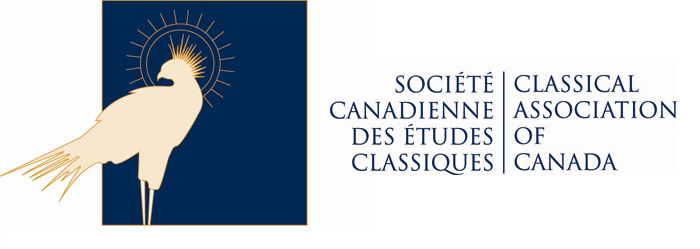CAC Statement on COVID-19
The COVID-19 global pandemic has changed higher education’s status quo: courses have moved online and/or been cancelled, research suspended or disrupted, university budgets have tightened, and faculty and staff positions have become more precarious. The Classical Association of Canada recognizes the challenges the pandemic poses to individuals, families, institutions, and the communities we are all a part of, and we urge institutions to be mindful and considerate of the stresses placed on faculty, staff, and students in the current and ongoing circumstances. The pandemic that saw campus closures in the winter term continues to affect the delivery of courses in the spring/summer as well as the 2020/21 academic year. We make the following recommendations with the hope that institutions involve faculty in developing their responses to COVID-19 and that faculty associations be a part of the decision-making process, whether in consultation or partnership. CAC recognizes that many institutions are already taking these steps and working with faculty associations; the intention of the document is to support those endeavors as a national approach, encouraging consistency across institutions and departments.
In light of existing and ongoing challenges to teaching delivery, the CAC recommends that student course evaluations for remote teaching be optional or removed altogether. This should especially be the case for the Winter 2020 term, when moves to remote teaching were often sudden and with little advance notice. Additionally, we recommend for those institutions hiring in 2020/21 that student evaluations for Winter 2020 and Spring/Summer 2020 not be required as part of the requested application materials. Furthermore, due to the difficulty in measuring such moves, we recommend that “evidence of transition to online teaching” not be part of the application dossier. In light of ongoing travel restrictions, we recommend that all first-round interviews take place by video- or phone-conferencing and that campus visits be arranged in line with whatever travel recommendations and public health advisories are in place at the time of scheduling the final round interviews.
We reiterate the recommendations of the American Sociological Association and American Historical Association that, in addition to limiting the use of student evaluations for the evaluation of faculty, institutions adjust their expectations for scholarly activity and be transparent in how criteria for evaluating faculty reappointment, tenure, and promotion will or have changed. We support calls for offering faculty the option to pause reappointment, tenure, and promotion clocks, recognizing that while some faculty will not want nor benefit from a delay of said clocks, others will. The decision to delay or continue a reappointment, tenure, or promotion track should thus be at the discretion of the individual faculty member. Whenever possible, faculty should have the option to delay sabbaticals, especially when travel for research was intended as part of the sabbatical.
The closure of university campuses and libraries as well as bans on international travel has resulted in a general disruption of research activities and scholarship and will likely to continue to do so beyond the summer 2020 research period. This is in addition to increased responsibilities for child- and elder-care which pose additional challenges to faculty work. We thus urge institutions to bear these constraints on scholarly activity in mind when considering the evaluation of faculty in annual reviews, tenure and promotion applications, the extension/renewal of contingent contracts, and hiring decisions.
Contingent faculty (full-time and part-time) have been significantly affected by the pandemic, whether from the reduction in hours, the cancellation of courses and thus of contracts, or the general uncertainty that has been thrown over everything. We urge institutions to be especially mindful of the particular challenges facing contingent faculty and to be as supportive of teaching and research by contingent faculty as possible. This could include, but is not limited to: offering early access to university, online, and library resources for newly hired contingent faculty and/or extending access to said resources to contingent faculty whose contracts have ended; extending contracts interrupted by the pandemic; renewing or extending contingent contracts whenever possible; and compensating contingent faculty fully for Winter and Spring/Summer 2020 contracts and any future contracts that may be affected by the pandemic.
Finally, we recommend that institutions be mindful in general of the challenges the pandemic poses to faculty, staff, and students regarding mental and physical health. The overall uncertainty inspired by the pandemic coupled with social distancing recommendations has ramifications for individuals’ mental well-being, which in turn affects scholarship, teaching, and learning. As we all move forward in the new world of a global pandemic, we ask that institutions consider the physical, mental, and emotional well-being of the entire university community in their responses to COVID-19.
American Historical Association: AHA Issues Statement Regarding Historians and COVID-19 (April-2020)
American Sociological Association: ASA Statement Regarding Faculty Review and Reappointment Processes During COVID-19 Crisis
Follow Us
Copyright © 2023 The Classical Association of Canada / Société Canadienne des Études Classiques
All Rights Reserved | Privacy Policy | Politique de confidentialité
